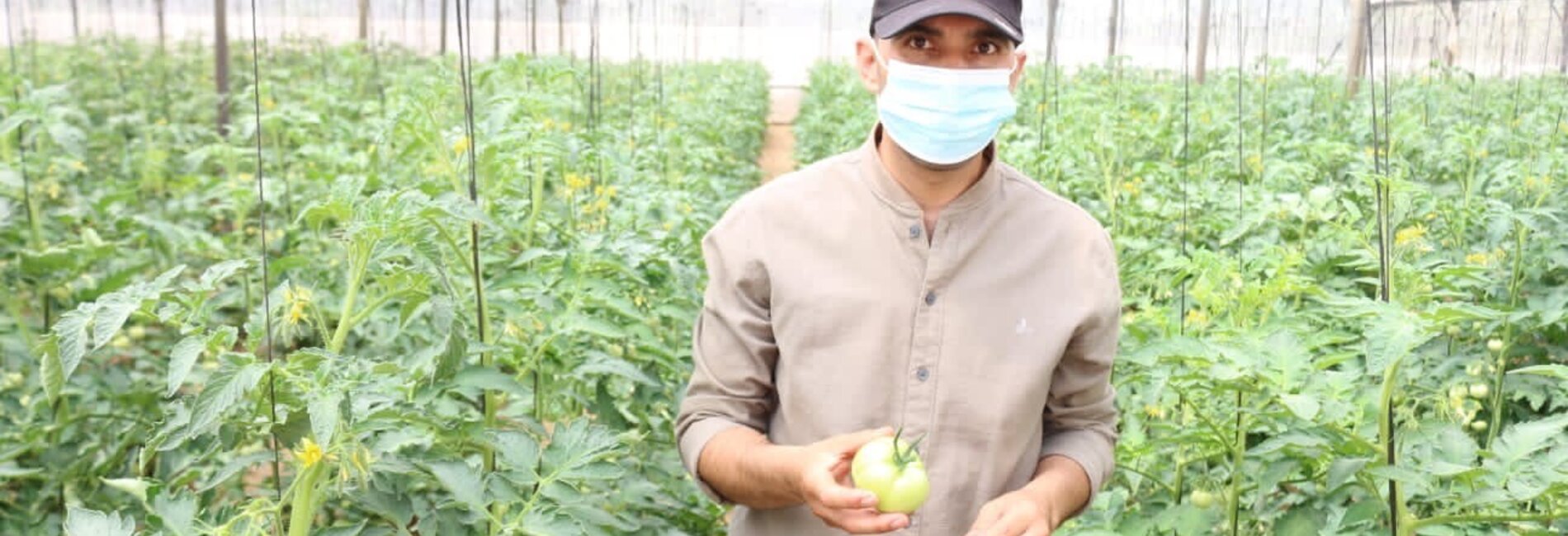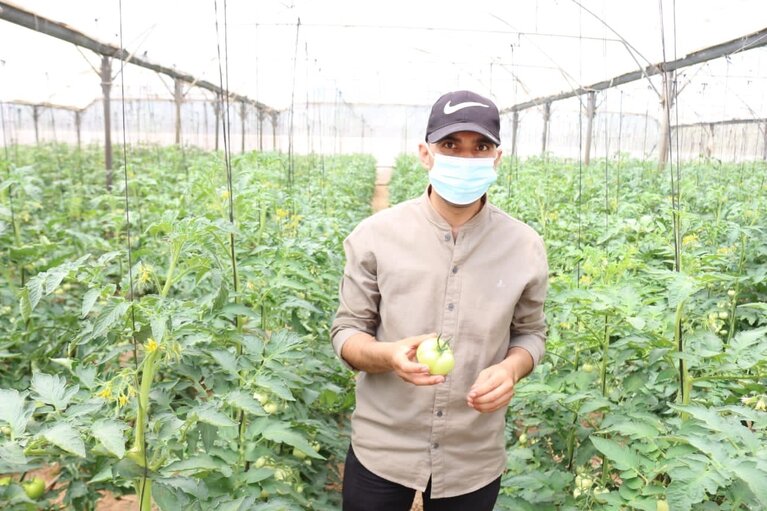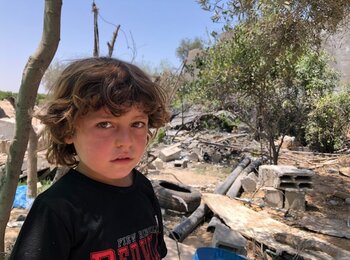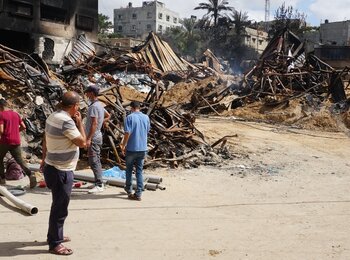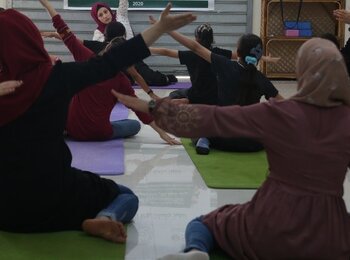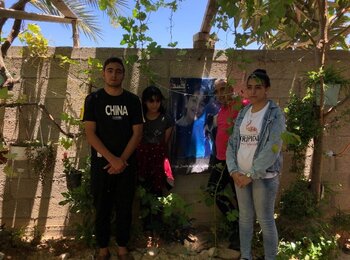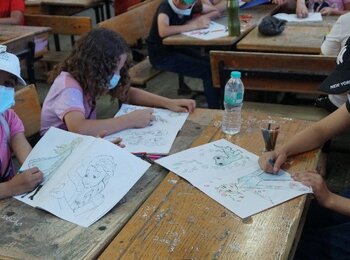New restrictions on the export of fresh tomatoes out of Gaza: – Mohammed’s story
“It cost me about NIS 10,000 (about $3,000) just to buy fertilisers, pesticide, plants and other material to prepare the land for the summer season. It was all on credit. We normally rely on exports to cover the cost, provide a living, and make some profit. As the harvest started in May, the war hit. The closure of the crossings, the new restriction, along with the heatwave, have been devastating. My supplier phones me every other day to ask for his money. It’s very humiliating not be able to pay back the debt. It’s shameful. The local market is saturated with tomatoes and does not generate any profit or cover the cost either.”
Mohammed, 6 October 2021
Mohammed (pseudonym), a 35 year-old father of ten, grows tomatoes in Rafah, southern Gaza. His work is supported by a project called “Urgent Assistance to Vulnerable Households and Farmers in Rafah,” funded by the OPT Humanitarian Fund, which seeks to lift food-insecure families out of poverty. The project is implemented by the NGO Action Against Hunger, in partnership with the Arab Center for Agricultural Development.
Mohammed is a university-graduate with a BA degree in accounting, although he is unable to work as an accountant due to limited job opportunities. To make a living and provide for his family he has no choice but to grow vegetables.
The unemployment rate in the Gaza Strip for the final quarter of 2020 was 43.1 per cent for those aged 15 years and above. Male unemployment accounted for 39 per cent, female 60.4 per cent.[1] The poverty rate in Gaza stands at 53 per cent.[2] In the aftermath of the escalation, 62 per cent of the population were food insecure.[3]
Since the imposition of the blockade by the Israeli authorities in 2007, following the Hamas takeover of Gaza, farmers in Gaza have become used to restrictions on access to external markets, including the West Bank. From the time of their harvesting in Gaza, vegetables take at least two days to reach the wholesale markets in the West Bank. It takes a minimum of three days to reach Israeli markets, due to additional mandatory tests carried out by Israeli authorities. By the time the fresh produce reaches external markets its quality is compromised, especially during hot weather conditions.
Following the May escalation , Israel first suspended all exports out of Gaza for about 40 days, costing farmers some US$ 12 million in losses.[4] New restrictions were then imposed, including the demand that the green stem, the sprig, be removed from every single tomato before exiting Gaza. This negatively impacts on both the quality and shelf life of the product.
According to Mohammed, the reason given by the Israeli authorities for the new restrictions was that removing the green stem reduces the presence of bacteria on the tomatoes. The Palestinian Centre for Human Rights reports that this export condition is not compliant with the demands of external markets, which prefer tomatoes with sprigs.
In the two months before the escalation, March and April, more than 9,000 tons of vegetables from Gaza were exported to the West Bank. By contrast, in the two months after the escalation, June and July, the Israeli authorities only allowed about 1,000 tons each month. The exit of tomatoes, which traditionally accounts for about 80 per cent of the vegetables leaving Gaza, was drastically reduced.
After the farmers protested the new restrictions,[5] the Israeli authorities temporarily lifted the restriction in July, but it was reintroduced in August, drastically reducing the quantity of vegetables exiting Gaza.
Despite projects such as the one under which Mohammed grows tomatoes, export of fresh produce out of Gaza continues to be undermined by the Israeli-imposed blockade.
“Growing vegetables is hard work as it is. It requires a lot of energy, time, and money. Being vulnerable to escalations and closures exacerbates it all. The least we want is to have the crossings open for exports,” said Mohammed.
[1] https://www.pcbs.gov.ps/portals/_pcbs/PressRelease/Press_En_15-2-2021-LF-en.pdf
[2] Palestine Central Bureau of Statistics March 2021, Palestine in Figures 2020, p.26
[3] The World Bank Press Release, 6 July 2021, The Rebuilding of Gaza Amid Dire Conditions: Damage, Losses, and Needs.
[4] Ministry of Agriculture, Ministry of Agriculture Briefs Journalists on the Damage Caused by the Export Ban on Farmers and Merchants, [Arabic].
[5] Ministry of Agriculture, In Pictures…Farmers Protesting outside of UNSCO against Israel’s Conditions on their Agricultural Exports, [Arabic].
